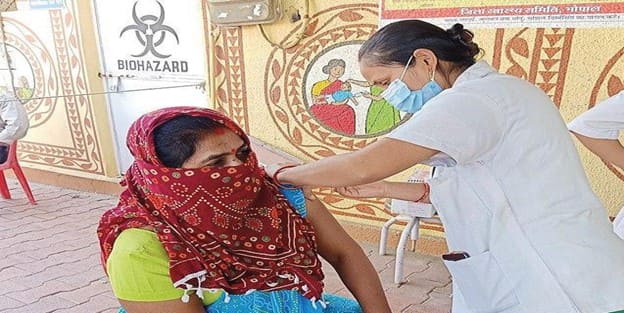
Amidst predictions of the third wave of the coronavirus pandemic in India, experts hope for an endemic turn of the pandemic to return to normalcy. In the month of June, 2021, the reported daily number of coronavirus infections began falling below 50,000 daily cases, reducing to 40,000 and 30,000 daily cases in the months of August and September. With numbers dropping even further in the month of October, predictions of the chances of a devastating third wave are becoming slimmer as India inches forward towards 100 per cent vaccination of its sizable population. The decrease in cases could be attributed to a large section of the population developing antibodies, either through vaccinations or by getting infected leading to a condition known as endemicity An endemic condition, as per the epidemiological terminology refers to predictable disease transmission with reduced severity (as seen in cases of influenza, seasonal colds or flu and in vector borne diseases such as dengue). This prevents chances of outbreaks, and limits the radius of infection to more sporadic outbreaks which can be easily controlled. According to the Indian Council of Medical Research, roughly about two-thirds of the population in India had developed antibodies against the virus. Leading Virologist at Ashoka University, Shahid Jameel stated that it was because of these infections and the subsequent development of anti- bodies, that the population would be protected from severe infections and symptomatic infection when the pandemic becomes endemic. For the endemic nature of SARS-CoV-2 to occur, the rate of vaccinations must be more than the virus’s ability to mutate through infection, making the limiting of transmission crucial for India to achieve this. It should be noted that although the recorded number of Covid infections have decreased, the country’s condition has not yet become endemic. Warning against complacency, Dr. Anant Mohan, the head of the AIIMS Pulmonary Medicine department, Delhi, emphasized on the conditions required for India to achieve endemic status such as in countries such as the United Kingdom and the United States, who have reopened and are functioning normally. These conditions implied the limiting of transmission to prevent the mutation of the virus to more transmissible and more resilient variants. The push towards an endemic India is beneficial to allow for predictive disease surveillance. The second wave of the pandemic was extremely destructive, with extreme spikes in infections and fatalities due to Covid and Covid-related complications. A predictive model of endemicity is crucial for better planning and disease control along with the current consistent pace of vaccinations.
10 Jan 2022
Hannah Sarasu John